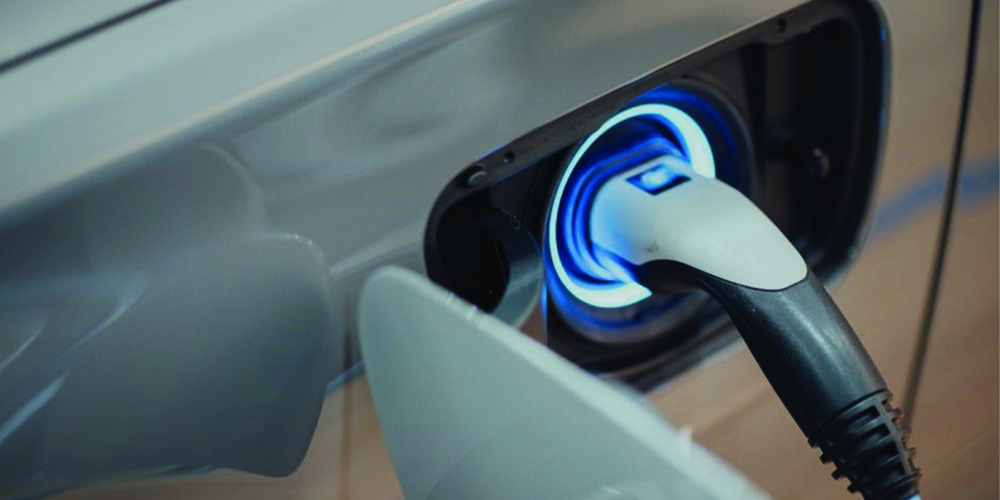Much can be said about your technicians. For example, some would say they are a shop’s greatest asset. Second, the tech staff could be considered a shop owner’s largest business investment — if you take into account the automotive knowledge, training costs and work skills they have developed under their employer. And finally, they may even be referred to as a shop’s lifeline. For if they are not performing well and cause customers to seek service elsewhere, then that shop’s health will be in jeopardy.
Current marketplace trends are beginning to focus attention toward automotive technicians. For example, new vehicle sales are down as more vehicle owners hold onto their cars and trucks longer due to their own economic worries. The increase in wear to these vehicles as they age should provide your shop with more service and repair opportunities.
And, following Chrysler’s decision in mid-May to close nearly 800 of its dealerships, General Motors Corp. announced that it would reduce its dealership levels by 40% — cutting 1,100 of its 3,600 dealerships. (This number does not include the approximately 300 GM dealerships that already closed earlier this year due to poor sales numbers.)
As dealerships close, their customers are being forced to seek other channels for vehicle maintenance and service. Would your shop be able to handle such clientele?
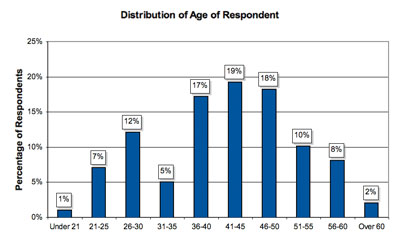
These unfolding scenarios may require you to hire additional staff — namely technicians. In fact, as dealerships near you close, you may be able to pick up a qualified and well-trained technician.
In order to help you better understand the makeup of today’s technicians, Underhood Service conducted a survey that focused just on the technician. This study, updated from the one released in 2001, provides information on a wide variety of topics that concern automotive technicians in the U.S. The results equip our readers with a more complete understanding of individuals working at a variety of independent auto repair facilities. We feel this greater understanding of technicians’ beliefs, motivations and backgrounds is helpful to our readers and those considering a career in this field.
Technician Overview
On average, we found that professional technicians working today have been doing this work for about 20.9 years (down from 23 years that was reported in 2001). About 12% of respondents were fairly new to the industry, with only five years or less as a tech, while 18% reported being a tech for more than 30 years.
The average number of years a tech has worked at their current shop is about 11 years, which was about the same (10.8 years) as reported in ’01. Interestingly, 4% of respondents said they have been at their current workplace for more than 30 years, while 47% said they have been at their current shop less than five years.
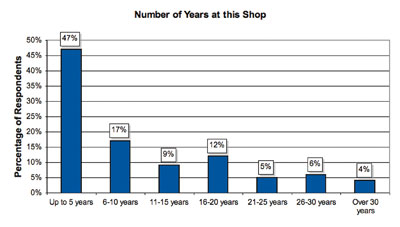
When asked “How many shops have you worked at in the last five years?” our results found the average was 1.5 shops. When asked “How many shops have you worked at in your career?” the average was 4.2 shops.
The average age respondents began working as a technician is about 20.2 years, up from 19.4 years in ’01. This could be that more technicians are attending post-secondary schools before entering the market.
The average age of the responding technicians is 41.8 (up from 40.7 years in ’01) with a median age of 43. We also found that 68% of the techs who responded are married (down from 73% in ’01).
When it comes to ASE certifications, 63% of responding technicians hold certification (up from 39% in ’01) with close to 50% of those without ASE certifications saying they plan to attain certification in the future. Of those who responded to our survey, the average ASE-certified tech holds five certifications in their field.
What best describes your tech’s education level?
Attended high school: 10%
High school graduate: 38%
Attended college: 13%
College graduate: 9%
Technical/trade: 30%
Total: 100%
Work & Pay
When we asked how technicians are paid, 35% reported they are paid “hourly only,” up from 29% in ’01; 32% are paid “salary only,” up from 26% in ’01; 13% are paid “hourly plus a percent of labor and parts,” up from 10.5% in ’01; and 20% reported “other.” Most technicians who reported “other,” which is down from 34% in ’01, wrote in they are paid a “flat rate” or “flag hours” for service work.
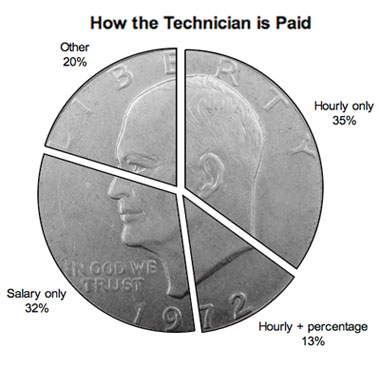
Of the techs who are paid by the hour, the average pay reported was $20 per hour. Of those who responded, 32% make $16 or less an hour, while 21% report making more than $24 an hour.
According to our results, technicians work about 44.4 hours a week, up from 42.3 hours a week noted in our survey eight years ago. Nearly one-third (30%) surveyed said they work weekends and evenings, down a bit from 34% in ’01.
Did You Know…
According to the U.S. Bureau of Labor Statistics, median hourly wage-and-salary earnings of automotive service technicians and mechanics, including commission, were $16.24 in May 2006. The middle 50% earned between $11.96 and $21.56 per hour. The lowest 10% earned less than $9.17, and the highest 10% earned more than $27.22 per hour. Median hourly earnings in the industries employing the largest numbers of service technicians were as follows:
Local government, excluding schools: $19.07
Automobile dealers: $18.85
Automotive repair and maintenance: $14.55
Gasoline stations: $14.51
Automotive parts, accessories and tire stores: $14.38
Career Shift
So why do some people chose a career in automotive repair? We all know that the ability to diagnose the source of a problem quickly and accurately requires good reasoning ability and a thorough knowledge of
automobiles. However, many technicians consider diagnosing hard-to-find troubles one of their most
challenging and satisfying duties.
But will your techs continue to be up to these challenges? Responses to our survey showed that while most technicians agree that their shop is a decent place to work and that the shortage of qualified, trained techs benefits them with job security, a small percentage would recommend this career to others. Also at issue is many technicians feel that the public doesn’t respect their skills.
This may contribute to the fact that 53% of respondents said they have considered or are considering a career change. Of those respondents, 42% said they would remain in the auto industry, but not as a tech; 26% said they would want to be a shop owner; and 32% said they would find work outside the automotive field.
When asked, “How long do you expect to remain an automotive technician?” the average response was 13.1 years. (Note that the median age mentioned earlier is 43 years old.)
Interestingly, while we were putting together this article, we received an open letter to the automotive industry from Tim Zilke, president and CEO of ASE. In the letter, Zilke addresses how the current economic conditions continue to have a significant impact on the automotive service industry — especially technicians. “Some highly qualified and dedicated automotive professionals now find themselves seeking new opportunities,” he said.
Zilke expressed that since 1972, ASE has been improving the image and the quality of automotive service through it certification program, adding that technicians should not despair.
“These are tough and uncertain times, but many opportunities exist as our vehicle fleet continues to grow and need maintenance and repair service.” Zilke said. “Consumers depend on both OEM and aftermarket service facilities to keep them on the road, and everyone needs qualified, dedicated service professionals to meet those service needs. Together, we can weather this economic storm. Together, we’ll get through this.”
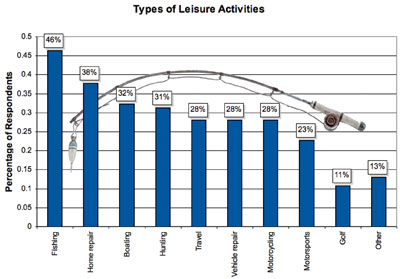
Staying Satisfied
We understand that it’s hard work keeping your employees happy. One way to keep techs content is to provide them with various benefits, such as allowing the use of the shop for personal vehicle repairs. A vast majority of technicians responding to our survey are given the opportunity to work on their own vehicles in the shop. When asked “Does your shop allow you to work on your own vehicles after hours?” 91% of the responses came back “yes.” Of those provided the opportunity to work on their vehicles at the shop, 96% said they take advantage of that benefit.
Some additional benefits your shop may consider offering are listed below.
10 Most-Valued Benefits For Employees
1. Provide a competitive income to recognize technical skills and the ability to expedite repairs through diagnostic expertise.
2. Offer “points” incentives for repairs that are done right the first time and that minimize parts returns.
3. Provide employees paid vacations and sick days. Do not dock employees when they need time off to tend to personal issues. Also, offer flex work hours.
4. Health insurance — a precious commodity today. Consider family medical insurance plans, and dental and vision insurance.
5. Fully paid training that includes transportation to the training facility.
6. Establish a working environment that is pleasant and built on family-like relationships so employees have a vested interest in the business. Customers will enjoy coming to your shop because your employees are friendly and customer-oriented.
7. Allow the use of the shop for personal vehicle repairs, but limit this privilege to family members only.
8. Birthdays and holidays off with pay.
9. Bonus and retirement plans.
10. Provide uniforms, and know that little things can mean a lot — like free coffee and maybe even a periodic free lunch.
As we have reported, how technicians are viewed outside the industry is a great concern for technicians. Many technicians believe they are still viewed negatively by customers and the public. And, somehow, we as an industry need to do a better job of addressing that issue.
About the Survey
Babcox Research conducted a survey across the three magazines that make up the Tech Group: Brake & Front End, Underhood Service and ImportCar. The objective was to gather information on the demographics and lifestyles of professional auto repair technicians. The targets were specifically shop employees, not those who have ownership or management positions. The surveys were mailed on Sept. 5, 2008, and 100 responses were collected through Oct. 13.
Edward Sunkin has been the editor of Underhood Service since April of 1999. He has been a member of the Babcox family of automotive aftermarket publications beginning in December 1994, when he joined the jobber/parts specialist magazine Counterman as an associate editor. Sunkin also spent three years as managing editor Engine Builder, learning about the engine and small parts rebuilding and remanufacturing industry.
Besides Underhood Service, Sunkin also serves as the editor of Tomorrow’s Technician, an automotive-related trade magazine delivered to more than 50,000 students enrolled in NATEF-affiliated schools.





